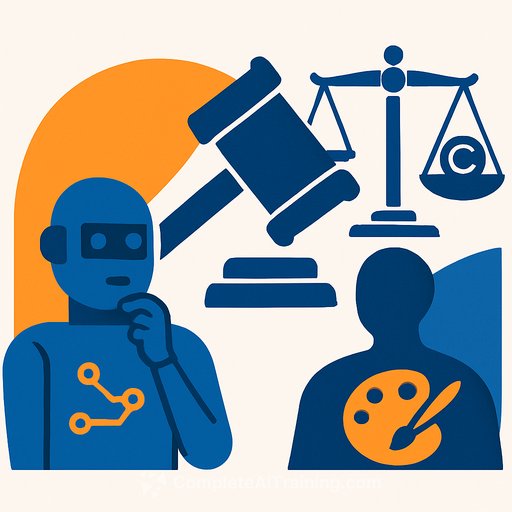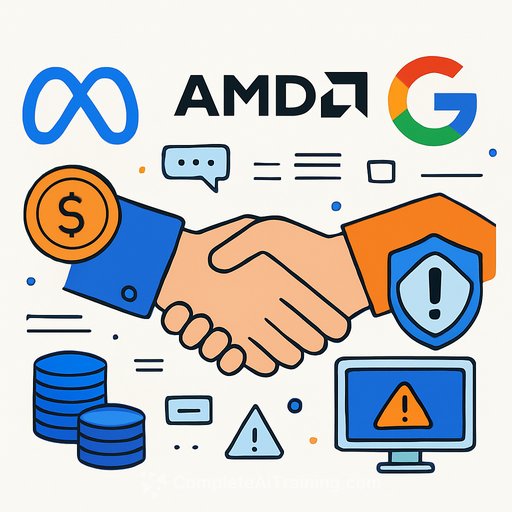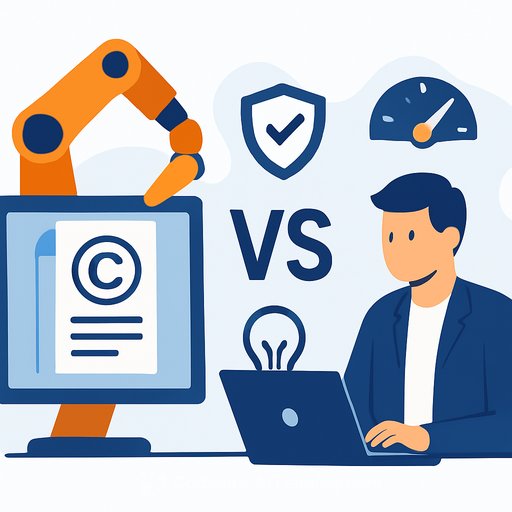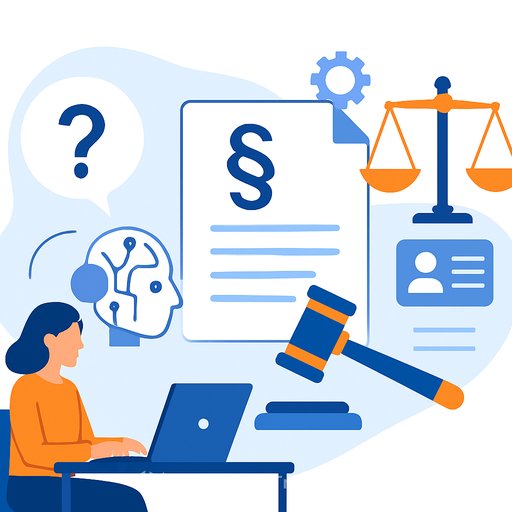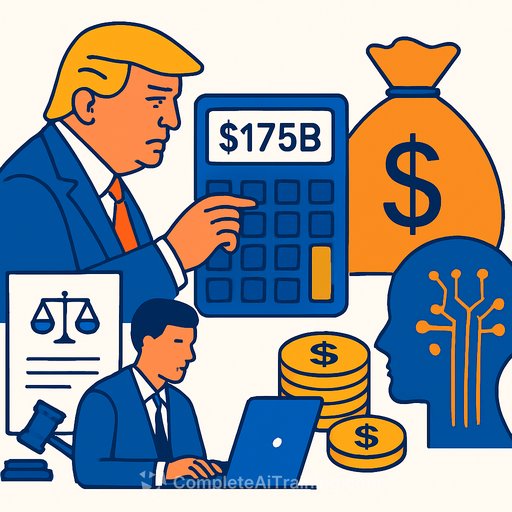AI Copyrighted Training Data Usage Explained: Fair Use or Exploitation?
Imagine this scenario: you create art, write, or develop software, only to find your work used to train an AI system without your consent. The AI then generates content strikingly similar to yours, which is sold to your audience, potentially affecting your income. Is this fair use or outright copyright infringement?
The legal landscape concerning AI's use of copyrighted materials is complex, with conflicting court decisions and evolving interpretations. With billions at stake and the future of creative industries on the line, the debate over whether AI training transforms or exploits copyrighted content is one of the most critical in intellectual property law today.
This article breaks down the key legal principles affecting this debate, focusing on fair use and its application to AI. You’ll see how courts assess whether AI training adds new value or unfairly harms original works, the risks AI developers face, and how companies can approach these challenges responsibly.
AI and Copyright Challenges
Key Takeaways
- The intersection of AI and copyright law is increasingly contentious, centering on fair use and infringement claims.
- Fair use for AI training depends on factors like purpose, nature of the work, amount used, and market impact.
- Conflicting rulings such as Barts v. Anthropic and Cadri v. Meta highlight ongoing legal uncertainty.
- AI companies risk statutory damages, costly litigation, and operational disruptions without proper authorization.
- Clearer legal standards and ethical data practices are essential for the future of AI development and copyright compliance.
What Is Fair Use in Copyright Law?
Fair use allows limited use of copyrighted works without permission under specific conditions. Courts review four factors:
- Purpose and character of use: Does it add new meaning or purpose, making it transformative?
- Nature of the copyrighted work: Is the work factual or creative?
- Amount and substantiality: How much of the original is used, and how important is that portion?
- Market impact: Does the use harm the market for the original work?
For AI training, the transformative nature of the process is a major point of dispute. AI systems analyze large datasets including books, images, and media to build models. Supporters argue this creates new, functional outputs like predictive tools, while opponents claim it often replicates content without meaningful change.
AI Training and Copyrighted Data
AI models require diverse datasets, often containing copyrighted materials. Some companies secure licenses, while others allegedly use unauthorized or pirated content. This difference leads to legal battles, with courts assessing if AI training qualifies as fair use.
Legal scrutiny focuses on whether AI training is transformative and if it negatively affects the market for the original works. Developers must carefully evaluate their data sources to avoid infringement claims and comply with copyright laws.
Conflicting Court Rulings and Legal Ambiguity
Recent cases illustrate the unsettled nature of the law. In Barts v. Anthropic, the court ruled against using pirated copyrighted content for AI training, stressing lawful data acquisition. Conversely, Cadri v. Meta suggested AI training might be fair use if it’s transformative, even without explicit permission.
These opposing outcomes reveal the lack of a unified legal approach, creating challenges for AI developers. Varying interpretations of fair use across jurisdictions complicate compliance and innovation efforts.
The Role of Market Impact in Fair Use Analysis
Market impact plays a critical role in fair use decisions. The emerging “market delusion theory” argues AI-generated content could reduce demand for human-created works, harming original markets. Courts have applied this theory inconsistently, with some accepting it and others dismissing it.
As AI-generated content grows, this theory could influence more rulings. AI companies should evaluate whether their use of copyrighted materials diminishes the economic value of originals or creates unfair competition.
Human vs. AI Use of Copyrighted Materials
Copyright law differentiates human and AI uses of copyrighted works. Humans read, interpret, and create without making unauthorized copies. AI systems, however, copy large datasets to learn, raising concerns about unauthorized reproduction.
This distinction creates unique legal challenges, especially since AI training often involves millions of copyrighted works. The scale and method of copying distinguish AI’s use from traditional human use.
Legal Risks for AI Companies
Using copyrighted materials without authorization exposes AI companies to several risks:
- Statutory damages: Can reach hundreds of thousands per infringement for registered works.
- Litigation costs: Legal disputes drain resources and may result in expensive settlements.
- Operational disruptions: Data acquisition practices may need overhaul, delaying projects.
To reduce risks, developers should use licensed data, public domain resources, or datasets created specifically for AI training. These approaches promote ethical AI development and legal compliance.
The Future of AI and Copyright Law
The ongoing legal debates will shape AI innovation and copyright law. To adapt, AI firms should:
- Increase transparency about data sources to build trust and show compliance.
- Train models on lawfully obtained materials to lower legal exposure.
- Engage with policymakers and industry groups to clarify legal standards and best practices.
The outcomes will impact intellectual property rights and the trajectory of AI development. Staying informed about fair use and copyright issues helps legal professionals guide creators and developers in this evolving field.
For those interested in further resources on AI and legal considerations, visit Complete AI Training for courses and insights on AI technologies and compliance.
Your membership also unlocks:

